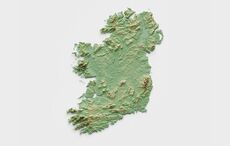GEORGE Mitchell is a hunted man these days. The former senator turned peacemaker is well used to pressure, especially during the critical moments of the Good Friday Agreement in Northern Ireland when he was the key driving force behind the deal, or when he was Senate Majority Leader. But this Democratic presidential nomination race between Senators Barack Obama and Hillary Clinton is like nothing he has ever faced.
George Mitchell is a superdelegate, one of those precious 796 voters in the Democratic Party who will decide the nominee. Right now he's more popular than Britney Spears at a paparazzi convention.
After Clinton's smashing victories in last week's primaries in Ohio and Texas, the role of the superdelegates is now clearly defined. Neither candidate can reach the magic figure of 2,025 from elected delegates alone. The superdelegates, therefore, will decide who the nominee is.
As one of the handful of party elders also capable of swinging the votes of other superdelegates, Mitchell is a clear and present target of the Obama and Clinton camps. That is why his phone has not stopped ringing.
Speaking from his midtown Manhattan law firm last week, Mitchell told the Irish Voice, "It's unbelievable. I have never seen anything like it."
Not even his recent brush with fame as the judge and jury on steroid use in baseball compares to this, he says. There is a real fear the party could conceivably split itself apart over the superdelegate vote.
It is all taking place against a frenzied media backdrop where every single utterance is magnified. Obama's Irish-born advisor Samantha Power found this out to her detriment last week when she was fired after calling Clinton a "monster" in a Scottish newspaper interview.
Mitchell says he is fielding dozens of calls a day from Clinton and Obama supporters seeking his precious endorsement. Famously discreet, he won't say who is calling or which way he is leaning, but you can guess both Clinton and Obama have been on the line themselves.
There's even a little boomlet for Mitchell as Obama's vice presidential choice on the grounds that he would provide much needed gravitas and political heft to the young senator. Mitchell chuckles when he discusses those reports. No doubt the Obama staff have been busy planting them.
They have already used Mitchell's words very selectively to cast doubt on whether Clinton had much of a role in the Northern Ireland peace process as she has claimed. Mitchell stated the truth that she did not take part in the negotiations, but that she certainly played a large part in providing a platform such as her "Vital Voices" conferences for the different sides to come together for the first time.
On the presidential race Mitchell, as always, is candid.
"Anyone who says they know what will happen is making it up" he says. "This is unprecedented and it will have to play out."
In over 40 years in Democratic politics he says he has never seen a race with so many switchbacks and lightning gearshifts.
Now on the final turn for home, the race will be determined in large part by Pennsylvania, the last great state up for grabs. It is prime Clinton country, and staffers are already whispering that a major blowout of Obama there that would change the basic dynamics of the race.
They believe there is not enough steel in the soul of Obama, that when Clinton finally got him off his high horse leading into Texas and Ohio he proved far less formidable.
"The voters and the media have finally begun to focus on Obama's positions, not on the hype," says Co. Tipperary-born Declan Kelly, a major financial contributor to the Clinton campaign. "This race is starting all over again."
Clinton operatives point to the fact that Pennsylvania is a closed primary, which means none of the independents that Obama relies on will be able to vote - or Republicans who have been drawn in some numbers to him.
They also point to the demographics of the state, overwhelmingly white, Catholic and blue collar, the type of voters Clinton has been winning in droves. With an Irish American population of 20% of the state, expect a major focus on Clinton's Irish activities during St. Patrick's week.
Five million more voters will go to the polls before this process is over. Clinton backers firmly believe she will finish very strongly, beginning with Pennsylvania, and will end up with a lead in the popular vote by then, if not a lead in delegates.
The argument to the superdelegates will then be clear. Clinton is the closer, the Democratic Party darling who can bring the core of the party base home. The message by then will be to vote for her and win the White House.
Obama, on the other hand, will point to his incredible grassroots support. It is still anyone's race.




Comments